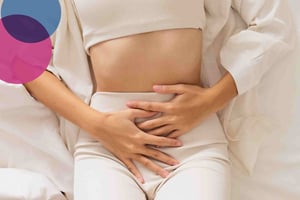April 19, 2016
The Truth About Egg Freezing
There has been a lot of media attention on the issue of ‘egg freezing’ and why women are choosing this procedure. Some of the reporting hasn’t helped the debate on the issue and the information can be quite misleading.
Here at the clinic we have seen and helped many women to freeze their eggs, because they are not quite ready to have a child, but are keen to do so in the future.
Of course, freezing eggs never guarantees a baby, but it’s a good way of ensuring that if you do decide to try later on in life, you will have a better chance of having your own ‘biological’ child. Egg freezing is not about combating infertility, it’s about minimising the potential for future disappointment. Many women in the media spotlight, who are seemingly easily having babies in their mid to late 40s are probably using donor eggs or some other assisted fertility method.
The facts are quite stark, there is a 70% chance of having a baby using frozen eggs from a woman in her mid-30s compared to a 50% chance when using eggs frozen at the age of 38.[1]
The reality is that fertility does decline with age and the process begins in a woman’s late twenties and becomes more significant over the age of 35 years. With this in mind, if you are considering planning for the future with regards to your fertility, it is worth having a fertility check-up in your twenties, as this is when you should be your most fertile and your eggs will be at their optimum quality. We believe that a fertility MOT should be a natural part of every woman’s health and well-being checks in their 20s.
That said, if you find yourself in your 30s and wanting children, but are still not quite ready, freezing may still be a viable option, but generally speaking, we advise people to consider egg freezing before they reach the age of 35 years.
The process
At the Harley Street Fertility Clinic we always recommended that you should discuss your options with a qualified medical professional before making any decisions or embarking on any treatment.
If you do decide to go ahead with egg freezing you will first need to schedule an appointment with a reproductive specialist and undergo some blood tests and ultrasound examinations. These are to evaluate the quality and quantity of your existing eggs or what we call the ‘egg reserve’.
A patient will then be asked to take daily doses of a hormone called FSH (follicle stimulating hormone) to produce multiple eggs for retrieval. A woman will self-inject FSH once a day for about 10 days, using a small needle. Over this period, a physician will monitor the woman’s eggs via ultrasound examinations and determine when they are ready to be retrieved.
“The retrieval process is fairly simple and is similar to having blood drawn,” comments Dr Geetha Venkat. “But instead of puncturing the skin, the needle goes into the vaginal wall and ovaries for about half an inch. Patients are sedated during the 10-minute procedure.”
Clinics will all charge to retrieve and store eggs for a woman and prices will vary. For more information please contact the Harley Street Fertility Clinic on: xxx.
[1] http://www.cdc.gov/art/pdf/2012-report/national-summary/art_2012_national_summary_report.pdf


